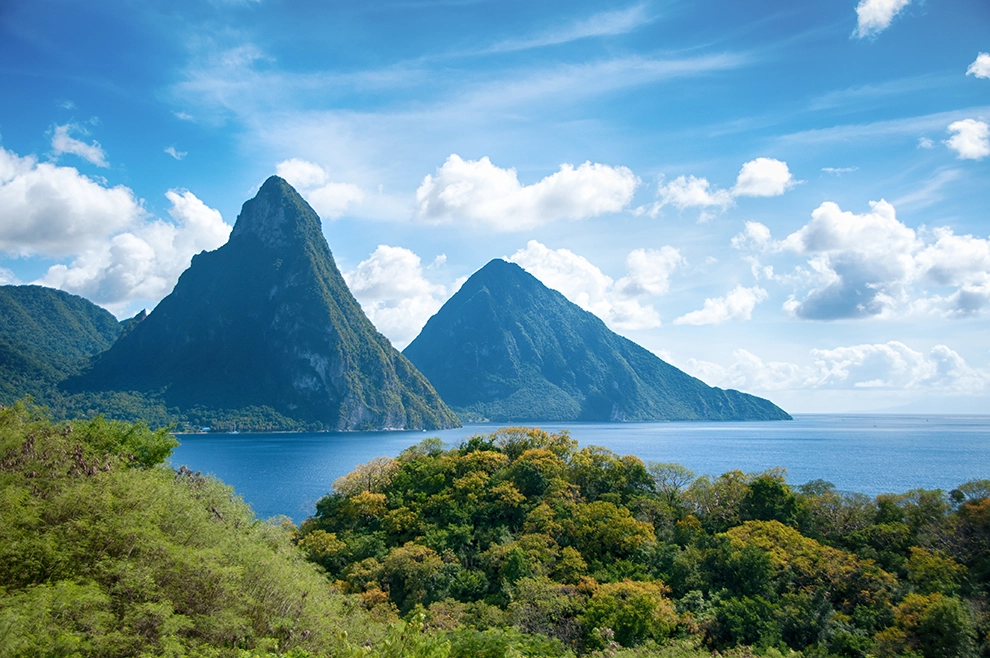The ICCF Group partnered with the Organization for Eastern Caribbean States (OECS) to hold a briefing on nature-based solutions for policy-makers of the Eastern Caribbean on August 12th, 2021.
The hybrid event was attended in-person by about twenty-five participants, including:
- Hon. Shawn A Edward, Minister for Education, Sustainable Development, Innovation, Science, Technology and Vocational Training
- Hon Alfred Prospere, Minister for Agriculture, Fisheries, Food Security and Rural Development
- Hon. Wayne D. Girard, Minister in the Ministry of Finance, Economic Development and Youth Economy
- Parliamentary Secretary Pauline Antoine Prospere in the Ministry of Education, Sustainable Development, Innovation, Science, Technology and Vocational Training
Andy Daniel, Speaker of the House in Saint Lucia
Other stakeholders included the Saint Lucia National Trust, Ministry of Sustainable Development, Forestry Division, Flora and Fauna International (FFI), The Royal Society for the Protection of Birds (RSPB), the Saint Lucia National Youth Council (SLNYC), and the International Institute for Cooperation on Agriculture (IICA). Virtual attendees joined from St. Kitts & Nevis, Trinidad and Tobago, and St. Vincent.
Welcome remarks by the Saint Lucia National Youth Council (SLNYC), Lord John Randall of Uxbridge, Hon. Shawn A. Edward, and the OECS acknowledged the relevance of the briefing in the context of a recent IPCC report and upcoming UNFCCC CoP in Glasgow, while highlighting the need for policy-makers in the region to action through strategies such as nature-based solutions and ensure the sustainability of natural resources for future generations.
Expert presentations highlighted nature-based solutions case studies from the region and provided tools for their incorporation into national action plans and policy.
Diana Francis of IICA presented a case study utilizing vetiver grass to mitigate land-based contaminants and reduce their entry into downstream marine environments, while also supporting local livelihoods through the Ecosystem-based Adaptation project. The discussion with stakeholders following the briefing highlighted other initiatives on nature-based solutions being undertaken by the OECS to support ocean governance and blue economy through the Caribbean Regional Ocean Scape project (CROP) and the Building Resilience in the Eastern Caribbean through Reduction in Marine Litter Project (ReMLIT). Several comments also focused on the importance of including environmental education for communities and youth as a critical component for successful nature-based solutions policies and projects. Following the briefing, many stakeholders stayed behind at the conference center to discuss opportunities and challenges for implementing nature-based solutions in Saint Lucia with the ICCF Group.

 Regional Headquarters
Regional Headquarters